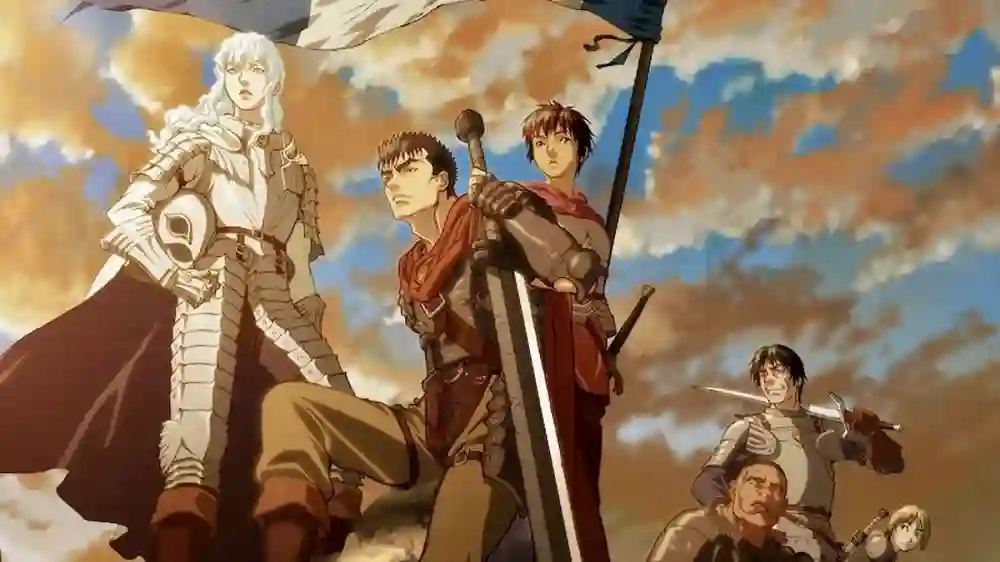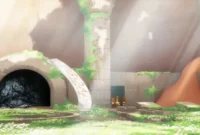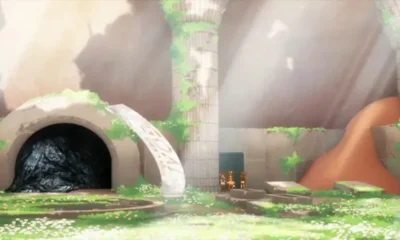
Berserk, Kentaro Miura’s dark fantasy epic, is a narrative tapestry woven with tragedy, brutality, and profound human emotion. Within the heart of this visceral tale lies Casca, a character whose journey encapsulates the tragic beauty that defines Berserk’s narrative landscape. In this article, we explore the complexities of Casca’s character, delving into the depths of her experiences and the emotional resonance that makes her a poignant and unforgettable figure in the realm of manga and anime.
A Warrior’s Spirit:
Casca’s introduction to readers is as a formidable and skilled warrior within the Band of the Hawk, a mercenary group led by the charismatic Griffith. Her prowess on the battlefield is not defined by gender norms but by a warrior’s spirit that matches, and at times surpasses, her male counterparts. Casca’s strength and resilience contribute to the gritty realism of Berserk, challenging stereotypes and establishing her as a central figure in the Band of the Hawk.
However, Casca is not a one-dimensional warrior. As the series unfolds, readers are given glimpses into the layers of her character, revealing a woman burdened by internal conflicts and societal expectations. Casca’s complexity lies not only in her martial prowess but in the emotional battles she faces within herself and the unforgiving world around her.
Trauma and Betrayal:
Casca’s tragic journey takes a harrowing turn during the Eclipse, a cataclysmic event that forever alters the course of Berserk. Betrayed by those she trusted, Casca becomes a victim of unspeakable horrors at the hands of demonic entities. The trauma inflicted upon her during this nightmarish event goes beyond the physical; it leaves an indelible mark on her psyche, shattering the strong and confident warrior she once was.
This transformation amplifies the tragedy of Casca’s character. The woman who once led armies and fought alongside Guts, the series’ central protagonist, is reduced to a state of vulnerability and trauma. Her identity as a warrior is eclipsed by the horrors she endures, and the emotional toll of the betrayal shapes the trajectory of her character, imbuing her narrative with a tragic beauty that resonates with readers.
Struggle for Identity:
Casca’s struggle for identity becomes a central theme in Berserk as she grapples with the aftermath of the Eclipse. The fragmentation of her self is depicted both physically and mentally, mirroring the internal disarray she experiences. The symbolic weight of her struggle is exemplified by the cursed Brand of Sacrifice, a mark that binds her to the supernatural forces that haunt the Berserk universe.
As Casca grapples with amnesia and the fragments of her memories, readers witness a poignant exploration of identity and the profound impact of trauma. The tragic beauty of Casca’s character lies in her quest to reclaim agency and rediscover her sense of self amid the ruins of her former life. Her journey becomes a metaphor for the resilience of the human spirit in the face of unspeakable darkness.
Connection with Guts:
At the core of Casca’s character is her connection with Guts, a relationship that adds a layer of emotional depth to the tragedy that befalls them. Guts, himself marked by a traumatic past and a relentless pursuit of revenge, becomes a source of both solace and complexity in Casca’s life. Their bond transcends mere camaraderie, evolving into a profound emotional connection that weathers the storms of Berserk’s dark and brutal world.
The tragedy of Casca’s character is intertwined with her relationship with Guts. As Guts struggles with his own demons, Casca becomes a tether to his humanity. Their connection is a fragile yet enduring thread that holds them together amidst the chaos that engulfs them. The emotional resonance of Casca’s character is heightened by the juxtaposition of her past as a fierce warrior and the vulnerability she exhibits in her connection with Guts.
The Possibility of Redemption:
Casca’s character arc in Berserk holds the promise of redemption, adding a glimmer of hope to her tragic tale. The journey to restore her shattered mind and heal from the traumas of the Eclipse becomes a focal point in the later chapters of the series. This quest for redemption introduces a narrative element that balances the darkness of Berserk with the possibility of healing and renewal.
Casca’s potential for redemption reflects the resilience of the human spirit in the face of overwhelming adversity. As readers follow her arduous journey, the tragic beauty of her character lies not only in the pain she endures but in the possibility of finding light amidst the darkness—a theme that resonates with audiences on a deeply emotional level.
Conclusion:
Casca’s character in Berserk is a testament to the narrative richness and emotional complexity that Kentaro Miura brought to his work. Her journey encapsulates the tragic beauty that defines the series, offering readers a profound exploration of trauma, identity, and the enduring human spirit. As Berserk continues to leave an indelible mark on the dark fantasy genre, Casca stands as a symbol of resilience in the face of tragedy, an embodiment of the nuanced storytelling that sets Berserk apart in the realm of manga and anime.
Related posts:


Forex & Crypto
5 Best Ways to Earn Crypto While You Sleep in 2025
Categories
- Apps (1)
- Automotive (23)
- Beauty (7)
- Business (122)
- Celebrities (2)
- Digital Marketing (21)
- Ecommerce (2)
- Education (22)
- Entertainment (39)
- Events (6)
- Fashion (1)
- Features (4)
- Finance (1)
- Fitness (10)
- Food (2)
- Forex & Crypto (23)
- General (116)
- Health (48)
- House (61)
- Lifestyle (57)
- Marketing (8)
- Parenting (3)
- Pets (10)
- Real Estate (8)
- Safety and Security (14)
- Social Media (31)
- Sports (142)
- Technology (73)
- Travel (23)






















